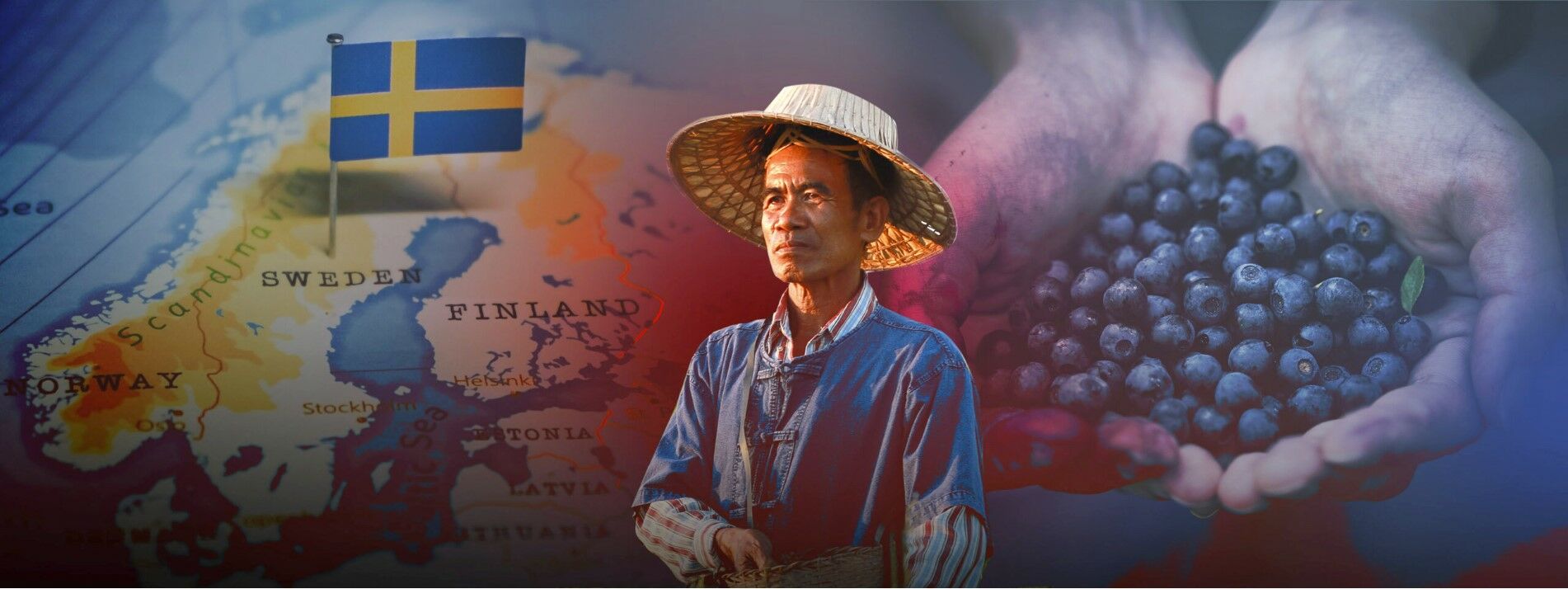Berry far away: Thai farmers chase sweeter loans in Scandinavia

The BAAC is offering loans for Thai farmers to harvest berries in Sweden and Finland this summer.
The state-owned Bank of Agriculture and Agricultural Cooperatives (BAAC) earmarked 375 million baht to help 5,000 Thai farmers embark on an adventurous journey to pick wild berries in Sweden or Finland during this year’s harvest season, starting this month.
BAAC President Chatchai Sirilai announced today that the bank will provide loans of up to 75,000 baht to its customers eager to travel to these Nordic countries. The aim is to enable farmers to support their families after the rice cultivation season concludes.
“We want to provide our farmers with opportunities to enhance their income.”
However, there are conditions attached to this offer. The loans must be repaid in a single instalment by December 31. Furthermore, only those who are current customers of the BAAC and whose names appear on approved employment agency lists are eligible. This measure ensures that the farmers are legally employed and receive adequate welfare protection while working abroad, reported Thai PBS World.
“The bank does not endorse farmers travelling independently to pick wild berries. We want to ensure their safety and legality through registered employment agencies.”
ORIGINAL STORY: Thai berry seekers left hanging: Labour Ministry plans visa harvest solution
The Labour Ministry of Thailand plans to solve the suspension of visa applications for Thais seeking wild-berry picking jobs in Finland by the 2025 harvest season, as disclosed by Somchai Morakotsriwan, the director-general of the Department of Employment.
The ministry, in collaboration with other state agencies including those from the Foreign Affairs Ministry, is working towards a solution following Finland’s Ministry of Foreign Affairs’ decision to suspend the acceptance of wild-berry pickers’ visa applications from Thais for the summer 2024 harvest season. This decision was due to concerns about exploitation and trafficking.
“The move is temporary,” stated Somchai Morakotsriwan, adding that the Labour Ministry is in the process of devising solutions. A short-term measure is the halt of a recruitment programme for berry picking jobs in Finland and Sweden until regulations are improved for better protection of workers’ rights. As a long-term measure, the ministry plans to propose talks on labour imports and exports to the governments of both countries.
Furthermore, to curb the trafficking and exploitation of workers, amendments will be made to laws and regulations to penalise employers and coordinators involved in these offences.
Prime Minister Srettha Thavisin announced the government is negotiating a mutual visa exemption programme with European countries. In light of tightened guidelines in February 2023, the ministry assessed Schengen visa conditions after the 2023 harvest season, following allegations of serious crimes during that period.
Historically, visas for wild-berry picking were issued on the presumption that pickers enter Finland for purposes similar to tourism, collect wild berries under the right of public access (Everyman’s Right), and sell the natural products they have harvested to a party of their choice. However, the Foreign Ministry highlighted that most pickers had employment contracts.
The ministry, therefore, stated that due to the risks of exploitation and trafficking, a long-term solution must be found by the 2025 season. The suspension of visa applications for berry pickers extends to the Embassy of Finland’s consular district in Bangkok, which covers Thailand, Cambodia, and Myanmar. As a result, Schengen visas will not be granted to wild-berry pickers from these countries for the summer 2024 harvest season, reported Bangkok Post.
A working group will review regulatory options in spring 2024 and visa applications for purposes other than berry picking will be processed as usual.
Latest Thailand News
Follow The Thaiger on Google News:


























